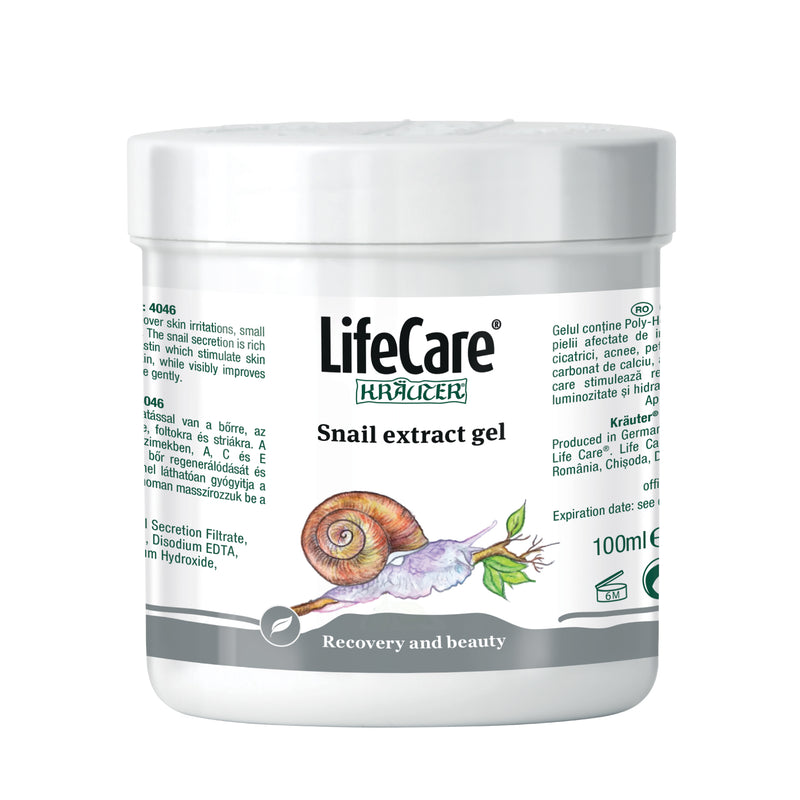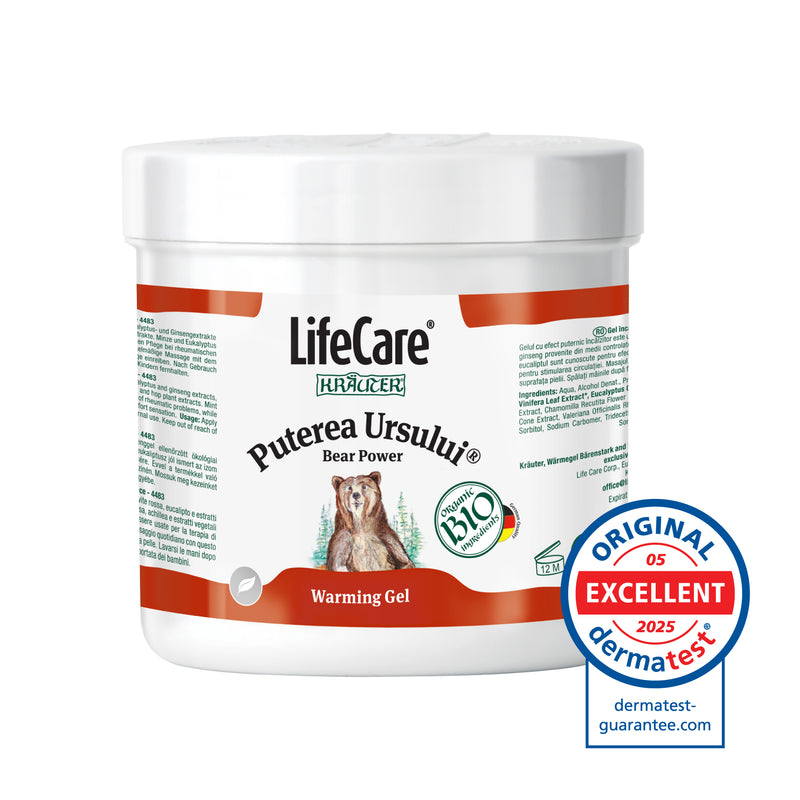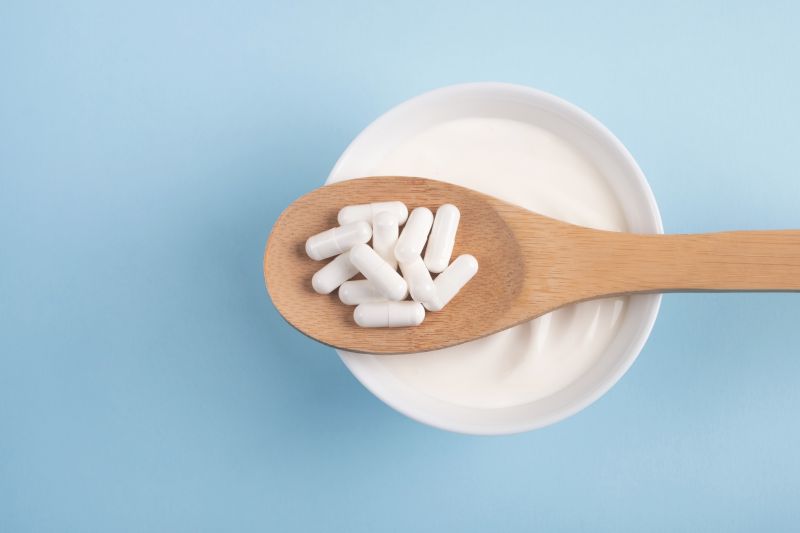Digestion is important for the decomposition of foods into nutrients, which the body uses for energy, growth and cell repair. The foods and liquids we ingest must be changed to smaller nutrient molecules, before they are absorbed into the blood, which transport them into cells in the entire body. These nutrients in our diet are "broken" in carbohydrates, proteins, fats and vitamins.
Each one has its role in the digestive system. Therefore, it is important to have sufficiently carbohydrate, protein, fat and vitamins, which will maintain the proper functioning of the digestive system. In some cases, when we encounter a disease (a disease of the digestive system, food allergies, intolerant, etc.), the body needs food supplements to function properly. Next, we will understand the benefits of food supplements for digestion and how to choose them according to personal needs.
Understanding the problems of the digestive system and stomach pain
Digestive problems occur when we ingest unhealthy or toxins, we make excesses or we have certain food intolerant (gluten, soy, dairy, etc.) the digestive system reacts and causes an inflammatory process. It can be emphasized due to stress, weight above the limit and a sedentary lifestyle.
Stomach pains are extremely annoying. They are also called "pain in the head of the chest", because it is located at the top of the abdomen. It manifests in the form of burning, sensation of pressure, cramps, nausea. They can be accompanied by constipation, diarrhea, general bad condition, energy loss, flatulence.
Stomach pains can occur even based on stress, but also specific conditions: ulcer, gastritis, gastroesophageal reflux disease, lactose or gluten intolerance, endometriosis, biliary tract, indigestion, gastroenteritis, irritable. medical).
Supplements for digestive system. Why are they needed?
For mild digestion and prevention of digestive tract disorders, it is recommended that in our daily diet we include a sufficient amount of fiber, probiotics and enzymes.
Enzymes are complex protein substances that regulate biochemical processes in the body. Without enzymes, food cannot be broken down into nutrients (vitamins, minerals, lipids, proteins, carbohydrates), the enzymes being necessary for other metabolic cellular activities.
Digestive enzymes are secreted in the entire digestive tract (stomach, pancreas, small intestine, large intestine, salivary glands). A certain type of enzyme acts only on a type of nutrient.
For example, bromelain helps to dissolve proteins from food, but cannot act on starch (as amylase). Therefore, each enzyme has a predetermined role in the body. They are classified according to the nutrients they break down: it protects - decomposes proteins; amylase - breaks down starch; gelatinase - breaks down gelatin and collagen; Lipase - breaks down fats.
Food fibers are an essential nutrient that protects the digestive tract. Therefore, you need to know what sources of fiber exist and introduce them in daily diet. They can be similar to some mechanisms of "maturation" of toxins in the body, and not only. The recommended daily dose is 25 grams of fiber for women and 38 grams for men.
However, most people consume only half of this quantity, although there are a lot of natural fiber sources. Fibers are essential for digestion: it successfully combat constipation, prevent the formation of gallstones, reduce the risk of hemorrhoids (which can be formed due to constipation), favors the development of "friendly" bacterial flora, reduce flatulence and the "too full" abdomen, encourage the natural detoxification of the colon.
If you suffer from gastric ulcer or hyperacidity, Aloe Vera helps you. It forms a protective film on the stomach and intestinal, with anti -inflammatory and analgesic role. Regular consumption of Aloe vera It regulates intestinal transit, eliminates bacteria and fungi located in the digestive tract, maintains the balance between "good" and "bad" bacteria, prevents metabolic imbalances, accuses foods through intestines, helps detoxify the body, especially the intestinal.
Probiotics are microorganisms or living cultures of bacteria that only benefit to the body. They populate the digestive system and create a balance between good and bad bacteria. A lot of conditions occur when the number of harmful bacteria is greater than the beneficial ones.
An optimal number of probiotics that colonize the stomach, the small intestine and the colon creates a microflora that does not allow harmful bacteria to develop.
In addition, they prevent the appearance of various diseases of the digestive system and strengthen the immune system. Helps eliminate toxins from the body, especially those accumulated in the colon. Friendly bacteria are a real help in the fight against infections caused by fungi, viruses, various bacteria and parasites.
Probiotics help you in the case of constipation, diarrhea, bloating, irritable bowel syndrome, infections (urination or candida albicans), food toxinfections, colitis, gastric ulcer, indigestion, cancer in the digestive system or after an antibiotic treatment.
Other important supplements for digestive health are: ginger root extract, pineapple, artichokes, vitamin D, papain, acai, graviola.
The best digestive enzymes and their essential role
The best digestive enzymes are those that act according to your body's needs. Therefore, you need to know what role each digestive enzyme fulfills and how it can help you.
The papain is one of the most important enzymes. It intervenes in food decomposition, being responsible for digestion of fibers and meat proteins. At the same time, it has a digestive effect, slightly laxative and purifying for blood. It has the role of eases digestion and facilitating the absorption of nutrients from animal sources. It activates at the digestive, pancreatic and intestinal level.
The lack of an optimal level of enzymes leads to the unbalance of the whole body. Pay attention to the following aspects that may occur in case of enzyme deficiency: bloating, flatulence, "full" sensation after meal, cramps, diarrhea, undigested food.
As a result, the conditions that occur as a result of enzymatic deficiency are: malabsorption of nutrients in food, lactose intolerance, obesity, food allergies, pancreatitis, liver or gallbladder liver.
It is an enzyme that, in the presence of biliary salts and colipase, transforms fats into triglycerides and glycerol, so that it can be absorbed at the intestinal level. Lipase is secreted primarily by the pancreas, but also by the stomach and the oral cavity. Its role is to maintain the permeability of the cell membrane, so that the nutrients enter the cell, and the toxins are successfully eliminated.
Amilaza is an enzyme produced in the pancreas and salivary glands that break down starch, glycogen and polysaccharides (it is responsible in processing carbohydrates in simple sugars).
Amilaza improves digestion, helps the body use starch from ingested foods as fuel (gives you energy), maintains blood glucose levels within normal limits (can prevent diabetes), help detoxify the body and support the immune system.
Proteases are enzymes secreted by the pancreas that act at the digestive level and break down the peptides at the amino acid level.
Lactase transforms lactose into glucose and galactose that can pass the intestinal barrier. Specifically, lactase is an enzyme secreted by the intestinal mucosa that allows the assimilation of lactose by the body. If the level of lactase is insufficient, when you consume dairy products it can occur: abdominal cramps, nausea, bloating, diarrhea and dizziness.
Bromelain activates the nutritional physiology of the digestive enzymes of the body and stimulates cellular metabolism. It contributes to the rapid dissolution of proteins from food, speeds up the digestion process and can act as gastric juice. Helps in case of bloating, gases or constipation.
Successfully combat indigestion, calms your stomach burns and removes the weight you have after you eat too much. In addition, it normalizes the microbial flora of the colon (regulates the pH), an essential factor in maintaining an optimal digestion.
How to choose the right dietary supplements for digestion
Dietary supplements for digestion are chosen according to the condition they suffer. If you are experiencing constipation or gas, then food fibers such as Psyllium Husk will help you. Stomach burns calm down with aloe vera juice.
If you suffer from food intolerances, we recommend digestive enzymes. For detoxification of the colon, all the food fibers are indicated. If the symptoms are recurrent and do not improve after changing the lifestyle and a treatment with dietary supplements, you must resort to the advice of a specialist doctor.
Conclusions and recommendations: The solution to a healthy digestive system
A healthy diet and a sufficient water supply helps prevent digestive problems. Avoid excessive consumption of fries, sugar, carbonated drinks. Maintain a balanced diet, hydrate yourself properly and avoid sedentary lifestyle.
If you have digestive problems that appear constantly (bloating, constipation, pain) call the specialist doctor. We recommend that you include as many healthy foods in your diet such as linen seeds, papaya, artichoke, pineapple, papaya and aloe vera. If necessary, use the help of food supplements for healthy digestion: fiber, prebiotics, probiotics, aloe vera, papain, bromelain, digestive enzymes, etc.
Useful questions:
What exactly are food supplements for digestion and how can I help me?
Dietary supplements for digestion have in their composition micronutrients or macronutrients acting at the level of the entire digestive system. These can be found in the form of tablets, capsules, powder or liquid formulas. These vitamins, minerals or other nutrients are actively involved in the proper functioning of digestion. It ensures the motility of the food bowl, prevent inflammation that can occur at the digestive level, as well as constipation, flatulence, bloating. They are indicated including in case of food intolerances (in soy, gluten, dairy, etc.)
How to differentiate digestive enzymes from other supplements for the digestive system?
Digestive enzymes play a key role in decomposing the foods you consume, as I explained earlier. Digestive enzymes can accelerate and improve digestion. However, they differ from the other supplements for the digestive system.
While you can consume probiotics and fiber every day, it is recommended that digestive enzymes only consume them when you need them (after a copious meal) or when you suffer from a specific condition (food intolerance). Otherwise, if you have a balanced diet, your body will naturally produce the enzymes you need.
Are there side effects of natural digestion supplements?
As with other vitamins and minerals, side effects can be taken in excessive side effects. These include: nausea, vomiting, indigestion, headache (headache), abdominal cramps. However, they are rare and appear in case of excesses.
How long does it take to observe the effects of food supplements for digestion?
While some supplements can act almost immediately (like food fibers), others need a few days or even weeks to make their effect. In the case of digestive disorders, the best results appear after 3 months of treatment.




